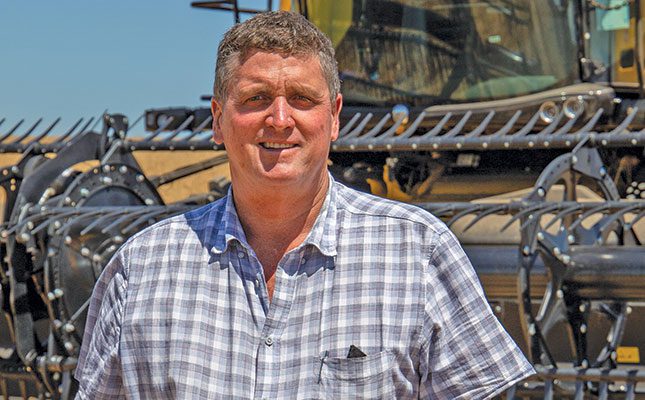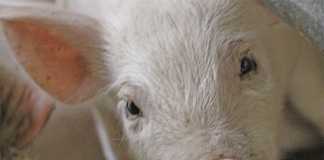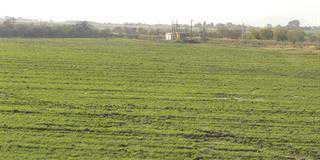
Photo: Supplied
On what do you base your success?
A visit to Australia in 2004 showed me the importance of scale. By combining scale and diversification, I’ve been able to invest in mechanisation and technology, spread costs across a bigger base, and mitigate risk. In turn, this has enabled me to take calculated risks to improve profitability. My family’s support has also been crucial.
Are there other opportunities that you would like to pursue?
I’ve always believed in striving for progress and improvement. It’s not always possible to expand in size, but there are other options such as vertical investment. We’d like to utilise our land better. With limited availability of land and high farm prices, we decided to concentrate on improving all our soils. We also focused on value-adding, such as improving grain quality and pre-clean certain lots before delivery. Grain quality is critical in the grain value chain, and for us, a better grade at delivery means more money.
Groot Phesantekraal recently received approval to build a dam, and we can now invest in irrigation equipment that will enable us to plant a summer crop. This should add value to our livestock operation.
What are your plans for the next five to 10 years?
We want to expand our pellet plant and run it on a commercial basis. We’d also like to invest in a feedlot. In addition, we’re investing in solar panels to generate electricity; using generators isn’t viable in the long term.
What were the challenges you faced over the past few years?
The volatility of the rand reduces our profitability and affects our long-term planning. Constantly rising fuel costs and the hike in input costs also affected our short-term profitability and credit limits with input suppliers.
The lockdown during the COVID-19 pandemic was challenging; we weren’t prepared for the consequences. Initially we thought it would last a couple of weeks, but we had to cope for almost two years. We discovered the importance of being able to carry salaries for a couple of months. I must, however, commend our staff; they came up with novel ideas and solutions to keep the business afloat during this time.
What changes would you make in agriculture if you could?
There are a number of things on my list. Agriculture should not be used as a political toy.
Farm work must be seen as a viable and attractive career. Research into crops and in related industries should focus on sustainability and environmentally friendly practices. Farmers must support industry organisations. Agriculture should operate and speak from one united platform.
How do you see the future of agriculture in South Africa?
The agriculture sector provides stability in the country, and I think it’ll be the glue that keeps South Africa together. I believe in the future of agriculture and in the future of our country.
What would your advice to other farmers be?
Start conservatively and get to know and understand your business. Agriculture is cyclical and therefore offers you the chance to change things that didn’t work, or improve on certain aspects. Make small adjustments. I’d also advise farmers to empower their workers and staff. Help them to be the best they can be, and together you’ll create a formidable team.
Email André Brink at [email protected].











